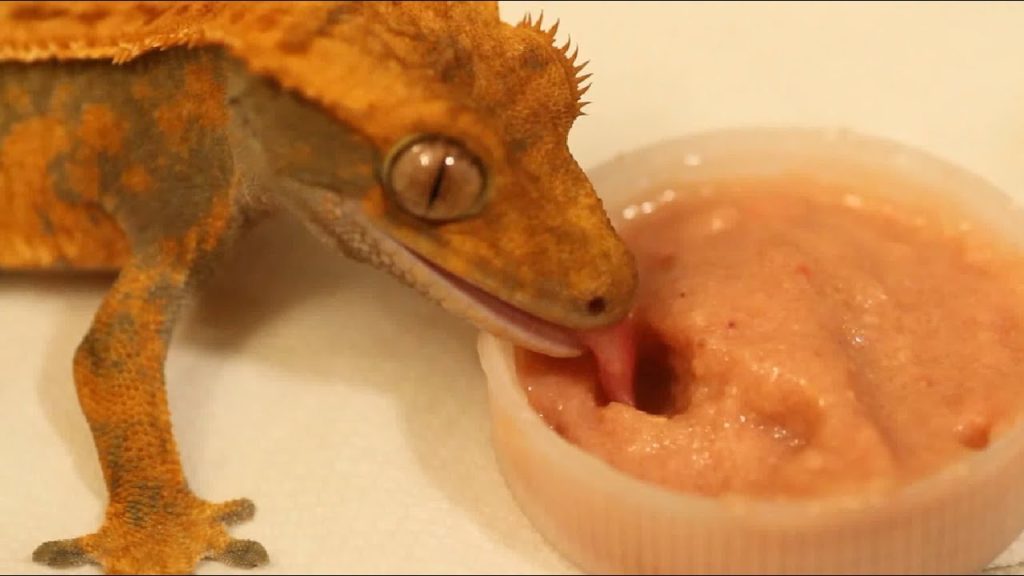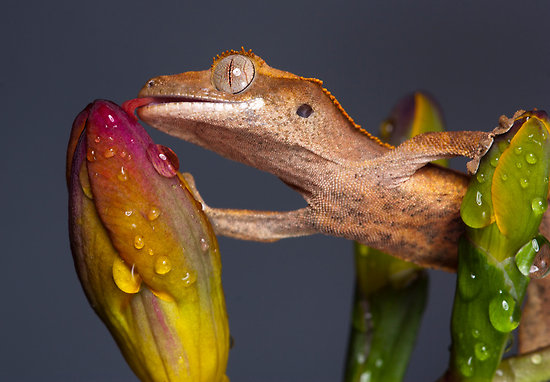How Long Can Crested Geckos Go Without Food? Get Proper Diet Plans!
How long can crested geckos go without food? Depending on the life stages, baby crested geckos can survive 5 days, juveniles can go a week, and adults can survive up to 3 weeks without eating.
Crested Geckos can lose their appetite while adapting to new environments, stress, and infections. Baby geckos face malfunction in the digestive system within 2-3 days and can’t go more than 5 days on starving. On the contrary, Adult geckos can survive up to weeks by using the stored body fat.
Want to know more about crested geckos? Go through our detailed guide for proper dietary patterns and feed properly to ensure healthy growth!
How Long Can Crested Geckos Go Without Food?

Baby geckos require continuous feeding to maintain proper growth. If the babies face starvation, the digestive system fails quickly, which causes serious health risks and leads to death within 4-5 days. Hence, always provide a nutritious diet for baby geckos to ensure quick growth.
In the juvenile stage, crested geckos require a regular feeding schedule as they are gaining weight too fast. If they start to starve, the weight loss starts quickly that causing severe issues. As a result, juvenile geckos can’t survive for more than a week without food.
According to Reptilecraze, adult crested geckos can go up to 3 weeks without eating. Even adults have stored fat that breaks down to provide energy while starving. If you inspect the adult starving for 2 weeks, consult a vet for a quick solution. Otherwise, starvation causes the failure of organs and leads to death.
How Long Can Crested Geckos Go Without Water?

Crested geckos can survive 2-3 days without water as they require a continuous supply of fresh water to maintain their metabolic activity and promote complete sheds.
Due to a lack of water source, high temperature, and low humidity, Crested geckos become dehydrated quickly. Once the scarcity continues, it causes decreases in skin elasticity, loss of appetite, and ribs getting stuck with bones.
If you inspect any of these signs, it is better to ensure daily misting, create a mini sauna, and offer fruits to supply water. Hence, geckos can intake water by licking droplets to rehydrate quickly.
How Often Should I Feed My Crested Geckos?
As per ZenHabits, baby geckos require feeding once daily, whereas adults require feeding every 2-3 days.
Baby geckos require continuous feeding as the digestive system fails quickly without a regular feeding pattern. Besides, baby reptiles require a rich and nutritious diet to ensure proper growth. If geckos are in the juvenile stage, don’t overfeed with live foods. In short, it can overweight the reptiles, which causes severe health risks.
On the other hand, adults require less frequent meals but a rich quantity of food. But avoid feeding high-fat live food to prevent obesity. If the adult geckos become overweight, feed them once a week to reduce weight.
What Can I Feed Crested Geckos?
Crested Geckos love both gut-loaded insects and fruits on the dietary. But feed live food regularly and fruits occasionally to balance the nutrition. Gut-loaded insects like crickets, locusts, roaches, and worms are protein-rich and ensure proper growth. But, avoid feeding silkworms and waxworms daily due to the high-fat content.
If you want to give your geckos a treat, we suggest feeding mango, watermelon, berries, dates, and pears. Just cut these high-sugar content fruit into small pieces and feed the geckos. Also, provide calcium supplements when inspecting any bone disease.
Why My Crested Gecko ls Not Eating?
Geckos can stop eating in situations like adapting to new environments, vivarium size, infections, and lower temperatures. Let’s dig into these factors in detail.
New Environment
While dealing with a new environment, Crested Gecko requires time to adapt to the surroundings. If you’re bringing a Gecko home, it can take a few days to adjust and resume normal eating habits.
Also, Crested Gecko takes time to adapt when you’re changing locations. But sometimes the geckos don’t take a regular diet even after a month, which causes severe health risks. Hence, we suggest calling a vet for proper care.
Size Enclosure
Crested Geckos become stressed in small and compact vivariums. If you’re raising a single adult, Oddcutepets states to pick a 20-gallon vivarium to give enough vertical space for climbing. For raising 2-3 crested geckos, it is better to provide at least 30 gallons of vivarium.
But never keep more than one male in an enclosure as they become aggressive to each other and fight for food. Also, younger geckos get bullied by the adults in the same enclosure, which causes stress. Due to extreme stress, Geckos lose their appetite for food. That’s why it is better to keep only one male to avoid stress.
Habitat Temperature
The metabolic rate of crested geckos decreases drastically once the temperature gets below 70° F. In short, they require warm temperatures to digest food. If the temperature drops below 60° F, geckos stop eating, causing severe constipation or impaction.
While inspecting negligence for food, we suggest checking out the temperature of the vivarium. If you find a lower temperature in the vivarium, keep the temperature at an optimum 70-78° degrees F. It can give the gecko proper warmth to maintain a healthy appetite.
Illness & Infection
Different diseases like vomiting, diarrhea, or constipation can reduce the hunger for food. Besides, parasites in the digestive tract or intestine cause infection, which leads to serious illness. Also, the mouth rots with mucus around the mouth, causing severe infections that result in loss of appetite.
Warp Up
Baby Crested geckos can survive 5 days, whereas adults can go up to 3 weeks without food. But geckos require a continuous supply of fresh water and only survive 2-3 days without it.
To keep Crested geckos healthy and maintain proper growth, feed baby geckos once daily and adults every 2-3 days. Issues like adapting to new environments, stress, and infections cause appetite loss. If you inspect the neglecting food for weeks, call a vet for proper instruction and care.
